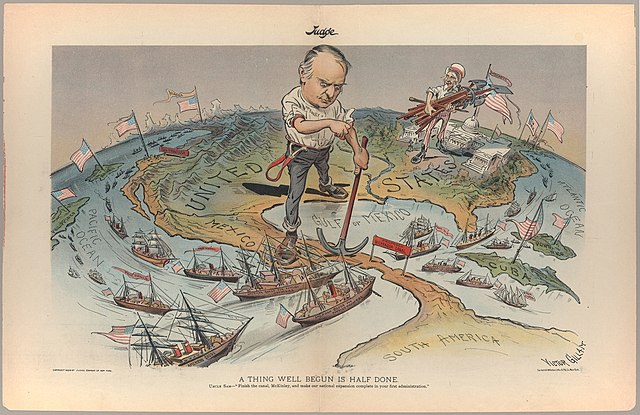Cultural imperialism comprises the cultural dimensions of imperialism. The word "imperialism" describes practices in which a country engages culture to create and maintain unequal social and economic relationships among social groups. Cultural imperialism often uses wealth, media power and violence to implement the system of cultural hegemony that legitimizes imperialism.
A jaguar hunter and his son, natives of the Chaco Boreal. The father continues to wear the traditional clothing of his region while the son has already adopted Western clothing.
Indigenous children who have been taken from their parents and placed in a Western-style residential school, which aimed to eliminate Indigenous language and culture and replace it with English language and Christian beliefs
Imperialism is the practice, theory or attitude of maintaining or extending power over foreign nations, particularly through expansionism, employing both hard power and soft power. Imperialism focuses on establishing or maintaining hegemony and a more or less formal empire. While related to the concepts of colonialism, imperialism is a distinct concept that can apply to other forms of expansion and many forms of government.
British assault on Canton during the First Opium War, May 1841
This cartoon reflects the view of Judge magazine regarding America's imperial ambitions following McKinley's quick victory in the Spanish–American War of 1898.
Entrance of the Russian troops in Tiflis, 26 November 1799, by Franz Roubaud, 1886
The capture of Lạng Sơn during the French conquest of Vietnam in 1885






